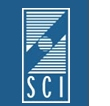 |
|

Science Curriculum Inc. Sets the Standard for Quality Middle/High School Physical Science
IPS set new standards for hands-on science when it was introduced over 35 years ago. It is equally well known that IPS did not attempt to follow the many trends that have come and gone since then. So, how can IPS and Force, Motion, and Energy be at the cutting edge today?
The answer is that many of the values and principles used to develop IPS and FM&E have been re-established and reinforced by the Benchmarks for Science Literacy developed by Project 2061 at AAAS and by the National Science Education Standards published by the National Academy of Sciences.
When a topic is introduced in IPS and FM&E, there is a close match with both of the above national documents. We have prepared a detailed correlation to national and state standards. The reports from teachers and results of using the IPS and FM&E assignments indicate that students learn the concepts and skills, but time is required. This is the reason only a limited number of topics are included in IPS and FM&E so students will have the time and the variety of experiences needed to develop an understanding of the ideas.
Recently an analysis of the results from the Third International Mathematics and Science Study (TIMSS) has highlighted the importance of a coherent course of study that focuses on a limited number of research topics.
The list below summarizes the national recommendations met by IPS for the past 35 years and continued by FM&E!
|
Values
and Principles of IPS and FM&E
|
National
Recommendations
|
|
| Adjustable to a wide range of talents. | "Science for all Americans" | |
| Has a central theme that disregards the boundaries between disciplines. | "Thematic approach" "Integrated science" |
|
| Learning occurs individually, in pairs, and interactively by the whole class. | "Cooperative learning | |
| Topics carefully selected to allow enough time for students to digest and apply what they have learned to new situations. | "Less coverage, more depth" | |
| Always develops evidence for generalizations. "How do we know?" | "The nature of science." | |
| Encourages thinking through the logical development of ideas and multiple-step problems. | "Higher-level thinking skills" | |
| Stresses oral and written communication. | "Reading and writing in context" | |
| Assessment of achievement is multidimensional including unstructured lab tests. | "Authentic assessment" |